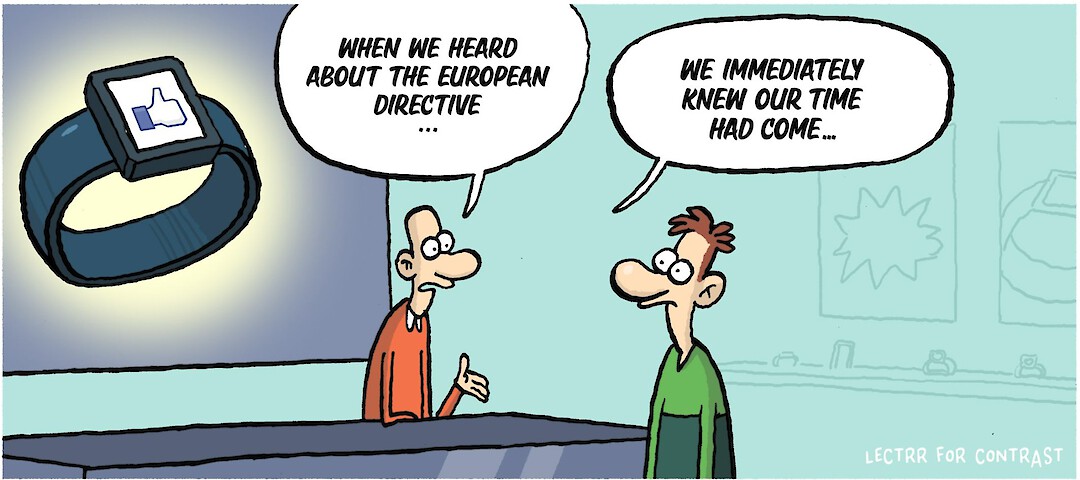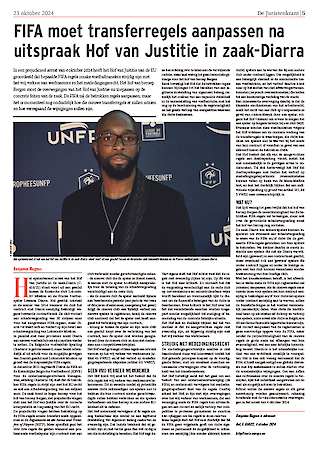In the Picture

Better protection in consumer sales
June 2022Imagine...
You are the head of the legal department of a company that sells smartwatches throughout the EU.
The latest model of the smartwatch is currently a source of concern for your business. Due to a bug in the system, certain essential functions are malfunctioning. Your company's customer service department is receiving one warranty claim after another. Your company decides to replace all affected smartwatches with an improved one. However, customers will have to wait several months for their new smartwatch.
For many customers, the wait is too long: they want a full refund of the price paid, and they want it now.
You are completely taken aback: can they insist on this? Surely your company has provided a reasonable solution?
A brief clarification.
As of 1 January 2022, Directive 2019/771 on certain aspects concerning contracts for the sale of goods (the "Directive") replaces the previous Consumer Sales Directive. The purpose of the Directive is twofold. Firstly, the Directive aims to improve consumer protection when buying goods within a digitally unified European market. Secondly, it makes it easier for businesses to sell to consumers across the EU.
The Directive applies to B2C sales contracts for the sale of tangible movable goods concluded as of 1 January 2022. Both online sales and sales through retail outlets are covered by the new rules. Goods with digital elements (e.g. smartwatches, laptops, smartphones, and electric bikes) fall within the scope of the Directive as well.
As of 1 January 2022, companies that sell such goods to consumers will have to take into account several tightened rules.
A first novelty is that sellers must provide the necessary updates to keep goods with digital elements in conformity. If the updates are not delivered, or only inadequately so, there is non-conformity.
In addition, the Directive lays down the minimum information that must be included in commercial guarantee statements. The Directive also includes obligations concerning how these guarantee statements must be provided to the consumer.
Furthermore, the period within which the rebuttable presumption applies that a product was already defective at the time of delivery is extended from 6 months to 1 year from delivery. During this one year, it is therefore up to the seller to prove that the consumer is responsible for the product's lack of conformity. Member States can even extend this period to 2 years.
The Directive codifies certain rulings of principle by the Court of Justice concerning remedies for lack of conformity. If a product required installation and this installation must be removed in order to repair or replace the product, the seller bears the costs. In addition, the consumer should not have to pay for the normal use of the replaced goods during the period preceding the replacement.
Also, in the case of non-conformity, the consumer can more easily withdraw from the sales contract. The Directive indeed clarifies that the consumer can terminate the sales contract if the product cannot be repaired or replaced within a reasonable period. This dissolution can take place without any court intervention. The “reasonable period” must be objectively determined, taking into consideration the nature and complexity of the good, the nature and severity of the lack of conformity, and the effort needed to complete the repair or replacement. Member States may interpret the notion of “reasonable period” more concretely.
The company in our example must therefore take into account the mandatory rules of the Directive. If a defect arises in the delivered product within one year after delivery, and the company cannot prove that the defect was caused by the consumer, the product must be repaired or replaced within a reasonable period. Failing this, the consumer can terminate the sales contract.
The Directive does not itself contain penalties for infringements, but it requires each EU Member State to provide for appropriate and effective penalties.
Concretely:
- For their B2C activities, companies have to take into account a higher level of consumer protection for the sale of tangible movable goods as of 1 January 2022.
- This higher protection includes mandatory rules on legal and commercial guarantees, conformity of goods and remedies, and burden of proof in case of lack of conformity.
- Because of the maximum harmonisation, Member States can only grant more far-reaching protection where the Directive allows this, for example by introducing longer guarantee periods or extending the period of presumption of non-conformity.
- Sales contracts and general terms and conditions with consumers must be adapted, taking into account the different national rules of each Member State.
- Infringements may give rise to national penalties.
-
The supply of digital content and services falls outside the scope of the Directive. It is subject to a specific directive concerning certain aspects of contracts for the supply of digital content and services.
Want to know more?
- You can consult the Directive via this link https://eur-lex.europa.eu/legal-content/NL/TXT/HTML/?uri=CELEX:32019L0771&from=nl
- Further information on the status of the transposition of the Directive can be found here https://eur-lex.europa.eu/legal-content/nl/NIM/?uri=CELEX:32019L0771.
- Directive 2019/770 on the supply of digital content and services can be consulted via this link https://eur-lex.europa.eu/legal-content/NL/TXT/HTML/?uri=CELEX:32019L0770&from=NL
Please consult our website or contact one of our team members if you have questions or require more information:













